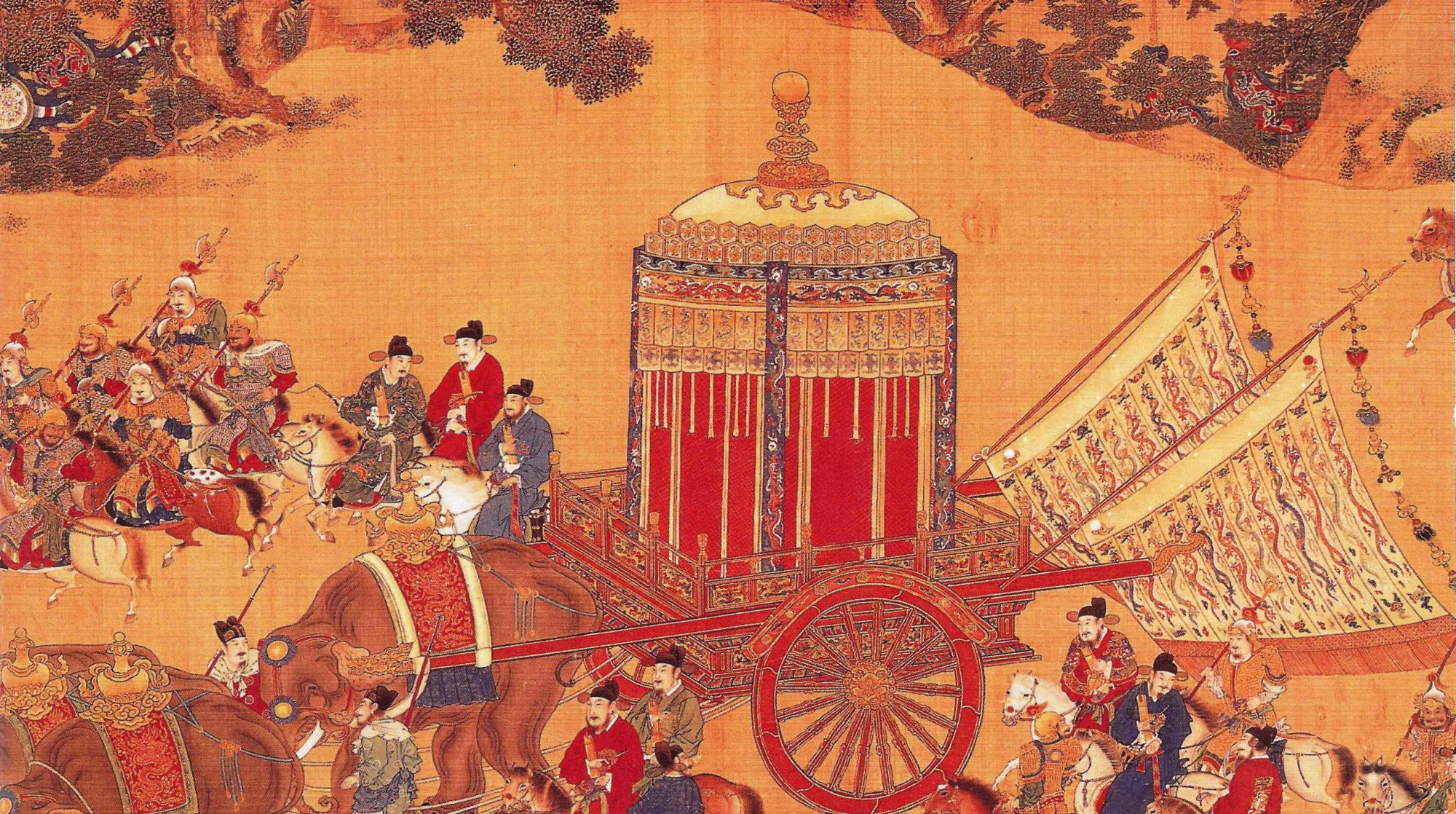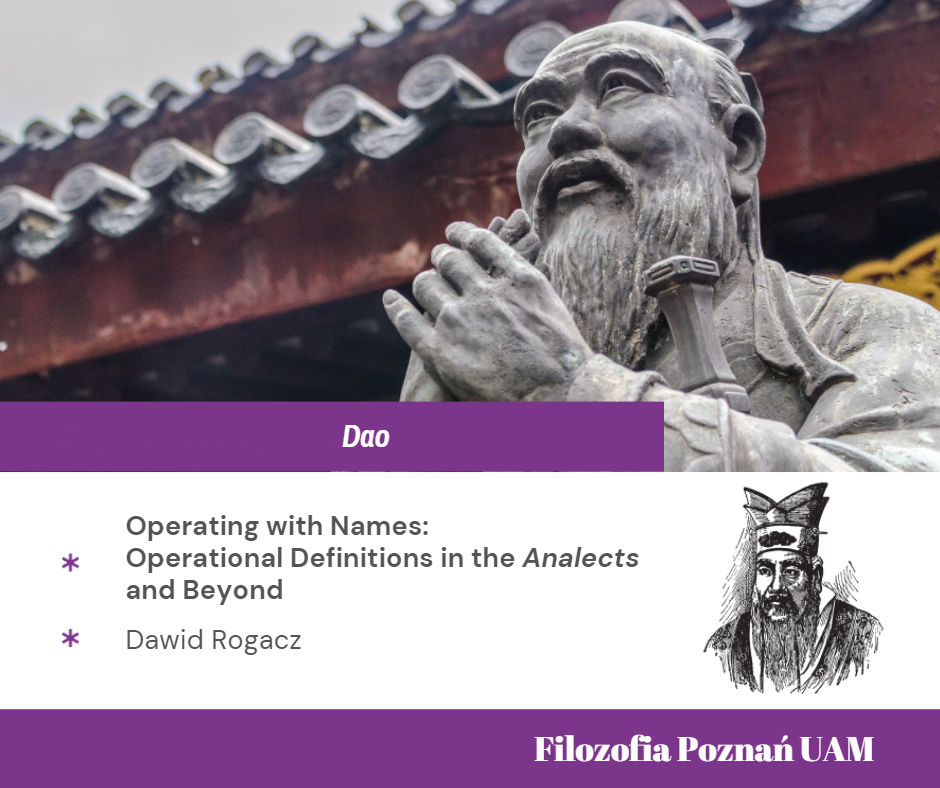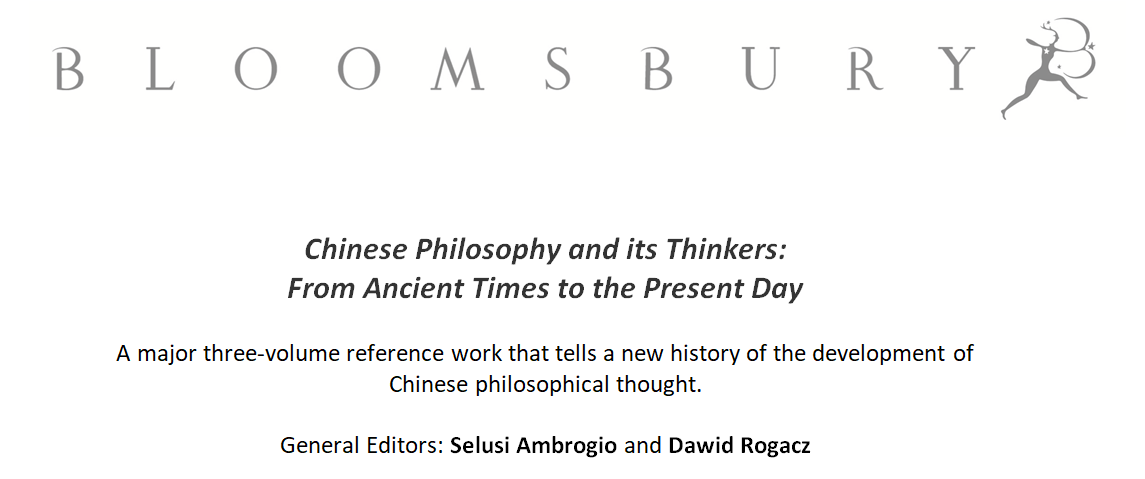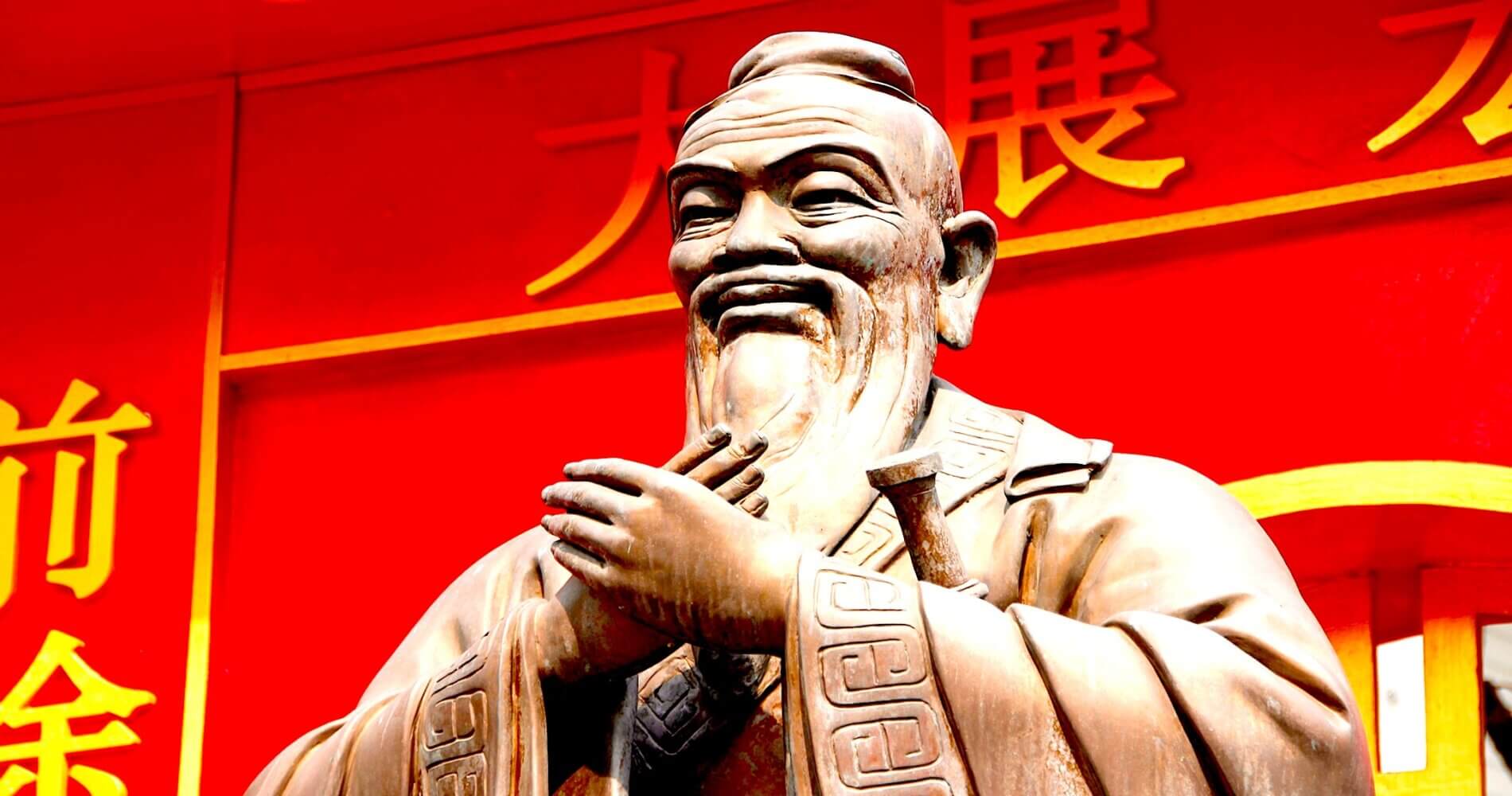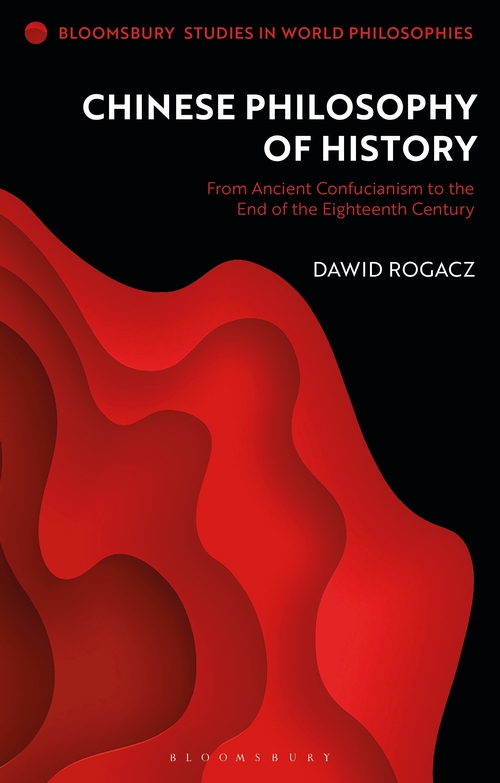Classical Chinese philosophy, and the philosophy of Confucius in particular, has often been criticized for lacking definitions of its core concepts. Dr. Rogacz’s paper argues that unlike Socrates, Confucius systematically used non-classical definitions—to be precise, operational ones. As it shows, this mode of defining things had major implications for the content of Confucian thought. The article is available in Open Access: link.
Visiting Scholar in Leiden
Throughout September 2021, Dr. Rogacz will be a Visiting Scholar at Leiden University Institute for Philosophy. He will give four talks within the series “New Perspectives on Chinese Philosophy”. Their program is available here. For Dr. Rogacz’s profile on the website of Leiden University and his contact details see the link.
START Scholarship
Dr. Rogacz has been awarded with START Scholarship, given by Foundation for Polish Science to 100 best young scientists and scholars in Poland by the age of 30. Moreover, Dr. Rogacz has been distinguished amongst the awardees as one of the five best candidates and the only representative of humanities and the social sciences in TOP5. For more information (in Polish) see the link. For an interview about the scholarship in the Second Station of Polish Radio see the channel.
Chinese Philosophy and its Thinkers: an encyclopedia
Dr. Dawid Rogacz and Dr. Selusi Ambrogio (University of Macerata, Italy) have been appointed by Bloomsbury as General Editors of the new, three-volume encyclopedia of Chinese philosophy: “Chinese Philosophy and its Thinkers: From Ancient Times to the Present Day.” The publication (in paper and online) is planned for 2024.
The project entails close cooperation with more than sixty scholars from all over the world under the guidance of the Advisory Board consisting of the leading experts in Chinese thought: Bart Dessein, David Chai, Yong Huang, Leigh K. Jenco, Peng Guoxiang, PJana S. Rošker, Wen Haiming, and Bryan W. Van Norden.
Each volume features 20 chapters (often divided into relatively independent sections) of around 10,000 words. Expanding and challenging existing views of Chinese philosophy, this wide-ranging collection shall:
- address misrepresentations and misrecognitions of Chinese thought by approaching Chinese philosophy in terms of thinkers rather than schools of thought
- feature chapters on an unprecedented range of thinkers, including independent philosophers often neglected from traditional surveys
- cover the linguistic and rhetorical form of Chinese philosophical thought
- discuss social, political, and economic contexts and interconnections between Chinese and other East Asian traditions, and Chinese and Western traditions
- provide up-to-date coverage of early modern encounters and those from the twentieth and twenty-first century
Popular science article on the Chinese philosophy of history
Portal “Wszystko Co Najważniejsze” has published a popular science article on the Chinese philosophy of history authored by Dr. Rogacz (in Polish): link.
A Conversation on Chinese Philosophy of History
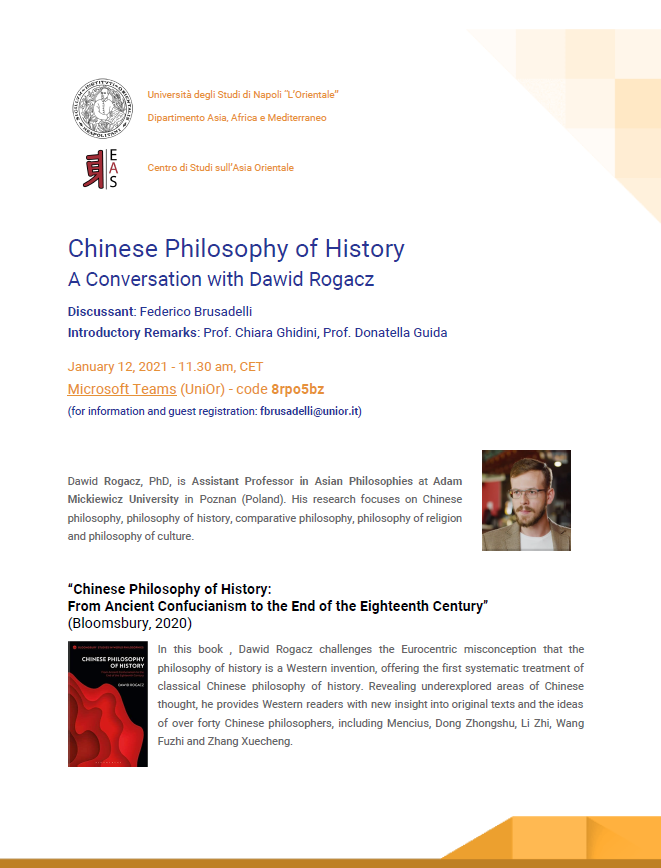
Bloomsbury book
Chinese Philosophy of History. From Ancient Confucianism to the End of the Eighteenth Century (Bloomsbury Academic, London 2020) is out!
Challenging the Eurocentric misconception that the philosophy of history is a Western invention, the book reconstructs Chinese thought from its beginnings to the end of the eighteenth century and offers the first systematic treatment of classical Chinese philosophy of history.
From reviews:
“Chinese Philosophy of History offers an original and unparalleled description and analysis of the enduring Chinese fascination with the nature, meaning, and writing of history, displaying an impressive command of historical sources and a mastery of philosophical understandings of history as process, narrative, and expression in other forms of culture.” –Philip J. Ivanhoe, Distinguished Chair Professor, College of Confucian Studies and Eastern Philosophy, Sungkyunkwan University, South Korea
For more information about the book and how to buy it see:
https://www.bloomsbury.com/uk/chinese-philosophy-of-history-9781350150102/
Scholarship of the Minister of Science
Dr. Rogacz has been awarded with Scholarship of the Minister of Science and Higher Education for Young Reasearchers. Polish Minister has distinguished 200 young scholars and scientists from all the fields, including three philosophers.
Interview for “University Life”
Polish educational journal “University Life” (“Życie Uniwersyteckie”) has published an interview regarding Dr. Rogacz’s recent projects and the reception of Chinese philosophy in Europe. The interview (in Polish) is accesible online.
New Grant: Translation of Wang Chong’s “Lunheng”
Dr. Rogacz received the National Program for the Development of Humanities Uniwersalia 2.2 Grant for the project “Polish translation and critical edition of ‘Lunheng’ (‘Balanced Essays’) of Wang Chong” (2019-2024), which aims at offering the first Polish translation of Chinese philosophical treatise written in the imperial era, as well as the third translation of Wang Chong’s “Lunheng” (after English and French). The translation, estimated at c. 1000 pages, will be published by PWN Publishing House as the first book of Chinese philosopher within the prestiogous and 70-year-long book series “Library of the Classics of Philosophy”. The philosophy of Wang Chong (27-97 CE) is an original and systematic example of Chinese naturalism, skepticism and the proto-scientific thought. Critical edition of his opum magnum will entail several library queries in Netherlands and China, designed to be conducted during the next five years.
